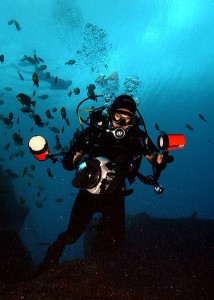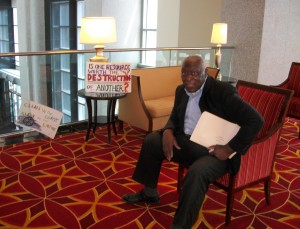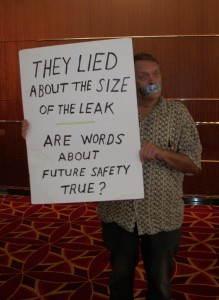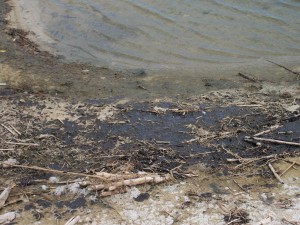The No New Drilling Act of 2011, H.R. 261, was introduced into the U.S. House of Representatives by Rep. Frank Palone of New Jersey. Current co-sponsors are Rep. Kathy Castor of Florida and John Garamendi of California.
The bill provides valuable protection of the precious outer continental shelf by prohibiting all new off-shore mining leases on the outer continental shelf including new oil-drilling leases. Such new mining efforts would increase the ongoing dangers to our coasts due to future oil catastrophes and other potential catastrophes. The bill would also help safeguard clean coastal industries, recreation, and coastal communities and their ways of life (see full text).
Of course, not all Americans will agree with or support this legislation. But I and just about all of us have much to consider and reconsider. Our energy use as Americans is far more than we need and it puts our whole planet at risk in terms of ecological disasters created in the pursuit of energy and ongoing environmental damage caused by energy use. By way of comparison, we, Americans, use much more energy per capita than comparably “developed” countries: Germany (we use 85% more), Japan (we use 92% more), and the United Kingdom (we use 98% more) (see list of countries’ usage). Compared to most other countries we use much more energy. For example, compared to Costa Rica, a Central American country with a higher life expectancy than the United States, we use 786% more energy per capita. Maybe we all have much to learn from one another.
I’m not holding my breath on the passage of the No New Drilling Act of 2011. But conserving energy is something each person can decide to do, and it reduces pollution and other catastrophic risks, one person at a time. So as long as my family and I are healthy, I can lower our thermostat in the winter and raise it in the summer. I can also adjust the thermostat depending upon whether we’re home or not. I can make sure I keep the heating/cooling system running efficiently with clean filters. I can turn energy saving lights off whenever I leave a room. I can adjust the hot water heater and put an insulator around it (lots of energy saving info here).
But I’m not giving up on promising legislation either. Because I want to protect the ecological wonder of the continental shelf, and because I believe we can reduce our energy use and find ways to produce cleaner and safer energy, I’m calling the Capital Switchboard toll-free at 866-306-3552 and asking my Congressperson support to the No New Drilling Act of 2011, H. R. 261.





